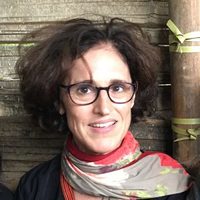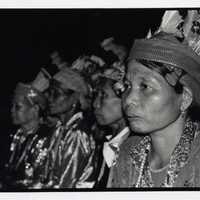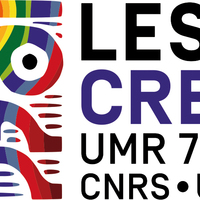Deprecated: strpos(): Passing null to parameter #1 ($haystack) of type string is deprecated in /var/www/html/themes/JaapKunstFoundation/view/omeka/site/item/show.phtml on line 27
Deprecated: strpos(): Passing null to parameter #1 ($haystack) of type string is deprecated in /var/www/html/themes/JaapKunstFoundation/view/omeka/site/item/show.phtml on line 54
Menyombang Invocation (Gawai Mamandung Ritual)
- Archivist's Original Title
- Original description
- Time duration
- Recording date of the original material
- Acquisition Date
- Population
- Place of the cultural origin
- Country Name
- Recording place
- Resource Language
- Comment
- Archivist Category
- Recording context
- Collector
- Name of original Collection
- Collection source citation
- Related material
- External reference
- History of ownership
- Holding Institution of Original Materials
- Licensing Institution
- Accessing Institutions
- Copyright Information
- Copyright Notice
- Physical format
- Preservation State of Physical Object
- Original item number
- SEAH Identifier
-
en
Menyombang Invocation (Gawai Mamandung Ritual)
-
fr
Invocation menyombang (rituel Gawai Mamandung)
-
id
Doa Menyombang (Ritual Gawai Mamandung)
-
en
Field recordings made in West Kalimantan, Indonesia, in 1997 by D. Rappoport :Dayak, Iban, Kayan populations.
-
fr
Enregistrements sonores inédits réalisés en Indonésie (West Kalimantan) en 1997 par Dana Rappoport, auprès des populations Dayak Taman, Iban, Kayan Mendalam.
-
id
Rekaman dibuat di Indonesia (Kalimantan Barat) pada tahun 1997 oleh Dana Rappoport, dalam masyarakat Mendalam Dayak Taman, Iban, Kayan.
-
en
00:06:07
-
en
1997-08-07
-
en
2011
-
en
Dayak Taman
-
en
Kampung Lunsa Hilir, kecamatan Putussibau, kabupaten Kapuas ulu, Kalimantan
-
en
Taman
-
en
1st day of a six day ritual. This day is called Bumbulan. Precedes the construction of cow cages (maniang pandung). Outside, near the river, the seated women bless the cages under construction. There are three groups of four elderly women. Behind we can hear the men leveling the ground.Lots of wind. They all sing at the same time, alternating. Polymusic. Too much microphone noise. The banks of the river are cleaned and planted with multicolored standards which flutter in the wind. At the end of the morning, the men will build the cages for the cows which will be sacrificed five days later. They level the space by weeding it and spread yellow rice on the ground. Three groups of four "Singers" in ceremonial clothing, wearing hornbill feathers, are seated next to them, facing the river, each group a few meters from each other, corresponding respectively to the three families who perform the ritual. In front of them, food offerings. Each group of singers begins a chanted song, performed simultaneously but separately. The voices are weak and trembling. The fact that they sing next to each other does not bother them or the others since no one seems to be listening. In fact, the Song is intended for invisible entities. He invites the spirits to come and consume the offerings and to guarantee the smooth running of the ritual. They "pray" to the moon (menyombang bulan), they "sing" the wooden cages (manimangi pandung), they consecrate the cages with the sung word, so that the cows do not die there before being killed, so that men are not turned into stone, so that the spirits do not bring any disorder.
-
fr
1er jour d'un rituel de six jours. Ce jour est appelé bumbulan. Précède la construction des cages à vaches (maniang pandung).
Dehors, près du fleuve, les femmes assises bénissent les cages en construction. Il y a trois groupes de quatre femmes âgées. Derrière on entend les hommes qui aplanissent le terrain.Bcp de vent,. Elles chantent toutes en même temps, en alterné. Polymusique. Beaucoup trop de bruit de micro. Les abords du fleuve sont nettoyés et plantés d'étendards multicolores qui flottent dans le vent. En fin de matinée, les hommes vont construire les cages des vaches qui seront sacrifiées cinq jours plus tard. Ils aplanissent l'espace en le désherbant et répandent sur la terre du riz jaune. Trois groupes de quatre"Chanteuses"en habits cérémoniels, coiffées de plumes de l'oiseau calao, sont assises à côté d'eux, face au fleuve, chaque groupe à quelques mètres l'un de l'autre, correspondant respectivement aux trois familles qui exécutent le rituel. Devant elles, des offrandes alimentaires. Chaque groupe de Chanteuses entame un chant psalmodié, exécuté simultanément mais séparément. Les voix sont faibles et tremblantes. Qu'elles Chantent les unes à côté des autres ne les dérange ni elles ni les autres puisque personne ne semble en situation d'écoute. En fait, le Chant est destiné aux entités invisibles. Il invite les esprits à venir consommer les offrandes et à garantir le bon déroulement du rituel. Elles"prient"la lune (menyombang bulan), elles"Chantent"les cages en bois (manimangi pandung), elles sacralisent les cages par la parole Chantée, afin que les vaches n'y meurent pas avant d'être tuées, afin que les hommes ne soient pas transformés en pierre, afin que les esprits n'apportent nul désordre.
-
id
Hari pertama dari ritual enam hari. Hari ini disebut Bumbulan. Diawali dengan pembangunan kandang sapi (maniang pandung). Di luar, di dekat sungai, para wanita yang duduk memberkati kandang-kandang yang sedang dibangun. Ada tiga kelompok yang terdiri dari empat perempuan tua. Di belakang kami bisa mendengar para pria meratakan tanah.Banyak angin. Mereka semua bernyanyi secara bersamaan, bergantian. Polimusik. Terlalu banyak suara mikrofon. Tepian sungai dibersihkan dan ditanami tiang warna-warni yang berkibar tertiup angin. Di penghujung pagi, para laki-laki akan membangun kandang untuk sapi yang akan dikurbankan lima hari kemudian. Mereka meratakan lahan dengan menyianginya dan menebarkan padi kuning di tanah. Tiga kelompok yang terdiri dari empat "Penyanyi" berpakaian upacara, mengenakan bulu burung enggang, duduk bersebelahan, menghadap ke sungai, masing-masing kelompok berjarak beberapa meter, masing-masing sesuai dengan tiga keluarga yang melakukan ritual tersebut. Di depan mereka, persembahan makanan. Setiap kelompok penyanyi memulai nyanyiannya, dibawakan secara bersamaan tetapi secara terpisah. Suaranya lemah dan bergetar. Fakta bahwa mereka bernyanyi bersebelahan tidak mengganggu mereka atau orang lain karena sepertinya tidak ada yang mendengarkan. Faktanya, Lagu tersebut ditujukan untuk entitas yang tidak terlihat. Ia mengundang para makhluk halus untuk datang dan memakan sesaji tersebut serta menjamin kelancaran ritualnya. Mereka “berdoa” kepada bulan (menyombang bulan), mereka “menyanyikan” sangkar kayu (manimangi pandung), mereka menyucikan sangkar dengan kata-kata yang dinyanyikan, agar sapi-sapi di sana tidak mati sebelum disembelih, agar manusia tidak mati. dijadikan batu, supaya roh-roh itu tidak mendatangkan kekacauan.
-
en
Music (Vocal)
-
en
Field recording
-
en
Indonesia: West Kalimantan, 1997, D. Rappoport
-
en
RappoportPercussions des Taman, in revue Percussions, n° 59, vol IX/5, 1998.
-
en
Archived at CREM, CNRS in 2011 by D. Rappoport
-
In Copyright. Non-Commercial Use Permitted
-
For any use, please contact the CREM-LESC (CNRS, Nanterre University, France): crem.lesc[at]cnrs.fr ; See information at https://archives.crem-cnrs.fr
-
en
Digital Audio Tape
-
en
original
-
en
CNRSMH_I_2011_016_002_14
-
en
SEAH_CNRSMH_I_2011_016_002_14
- Media





